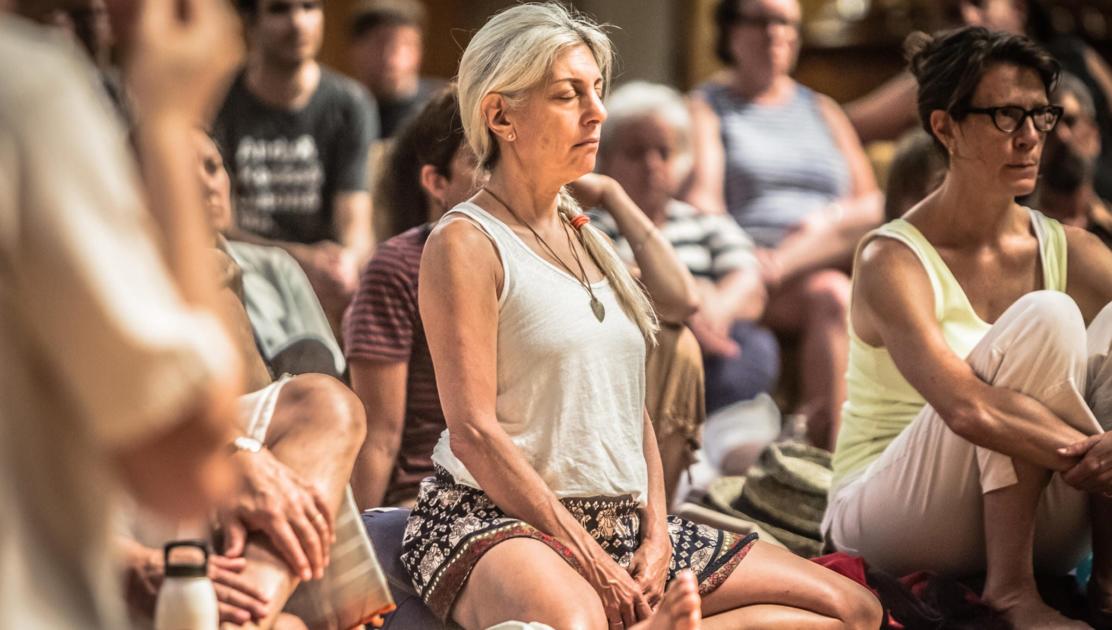Cultivating Steadiness and Compassion in an Unpredictable World
Mindfulness is becoming a vital tool for justice system professionals.
By Dan CarlinWorking in high-stress legal and justice system professions has never been easy. But with major changes to immigration policy, criminal justice, and environmental policy, among others, amidst a volatile political climate, the pressures have reached a fever pitch. For a growing number of these professionals, mindfulness—the practice of kind, moment-by-moment attention—provides a way to stay calm, make wise decisions, and act with compassion amidst chaotic circumstances. And that’s good news for those they serve.
For everyone from police to correctional officers to public defenders and corporate attorneys, specialized mindfulness training programs are now providing skills for these groups to do their work with greater ease, effectiveness, and kindness, including in contexts known for conflict or even violence. In October, the Garrison Institute will host the latest in a series of residential mindfulness retreats for law professionals and students, which will teach these vital skills and their application in legal settings, through a combination of presentations, workshops, and periods of silent meditation.
For law professionals working on the front lines of social justice issues and “hot button” areas like immigration and health care, the risk of burnout is particularly acute. As Charlie Halpern, a pioneering public interest attorney and one of the teachers of the Garrison Institute retreat said in a recent interview with the Daily Good, “We’ve got to respond forcefully and effectively, and in a way that’s grounded. We shouldn’t respond when we’re driven by rage, but instead when we’re driven by a sense of possibility—a possibility that we can open new dialogues in this country, and back off from the intense polarization that’s characterized American decision-making processes over vitally important matters for decades. How can we come together in a place of dialogue, mutual respect, and interconnection?”
The mindfulness trend is showing up in other, even less likely parts of the justice system. As Barry Yeoman reported recently in Mindful magazine, police departments across the U.S.—including in California, Texas, Washington, Wisconsin, and Virginia—have been signing on to mindfulness programs as a way to combat the intense stress and trauma faced by police, and to help reduce use of force incidents. Despite their macho image, some officers are finding these “soft” skills vital to their work—allowing them to make better decisions in tense moments, to decompress afterwards, and to avoid taking their stress and trauma home. Research underway out of Pacific University and University of Wisconsin will look at the effect of mindfulness training on officer wellness, use of force, citizen satisfaction with police officers, and other measures. Positive results could lead to much wider adoption across the profession.
Similarly, through programs taught by the Center for Mindfulness in Corrections, correctional officers in Oregon, California, Kentucky, and Rhode Island are experimenting with mindfulness as a way to avoid the intense stress, depression, substance abuse, and burnout that plagues so many in their profession. It can also help transform the prison environment, which is often toxic for correctional staff and incarcerated individuals alike.
These programs represent a cultural shift that normalizes self-care and compassion, even in the most aggressive and violent of professions. It’s a change that is likely to mean healthier careers in those fields, and just as importantly, better interactions with those they serve and engage with: clients, judges, citizens, incarcerated individuals, and others. It’s a shift that could benefit all of us.
Dan Carlin is Executive Director of Transforming Justice, an organization working to create a more fair and humane criminal justice system using mindfulness to transform attitudes, practices, and policy.
